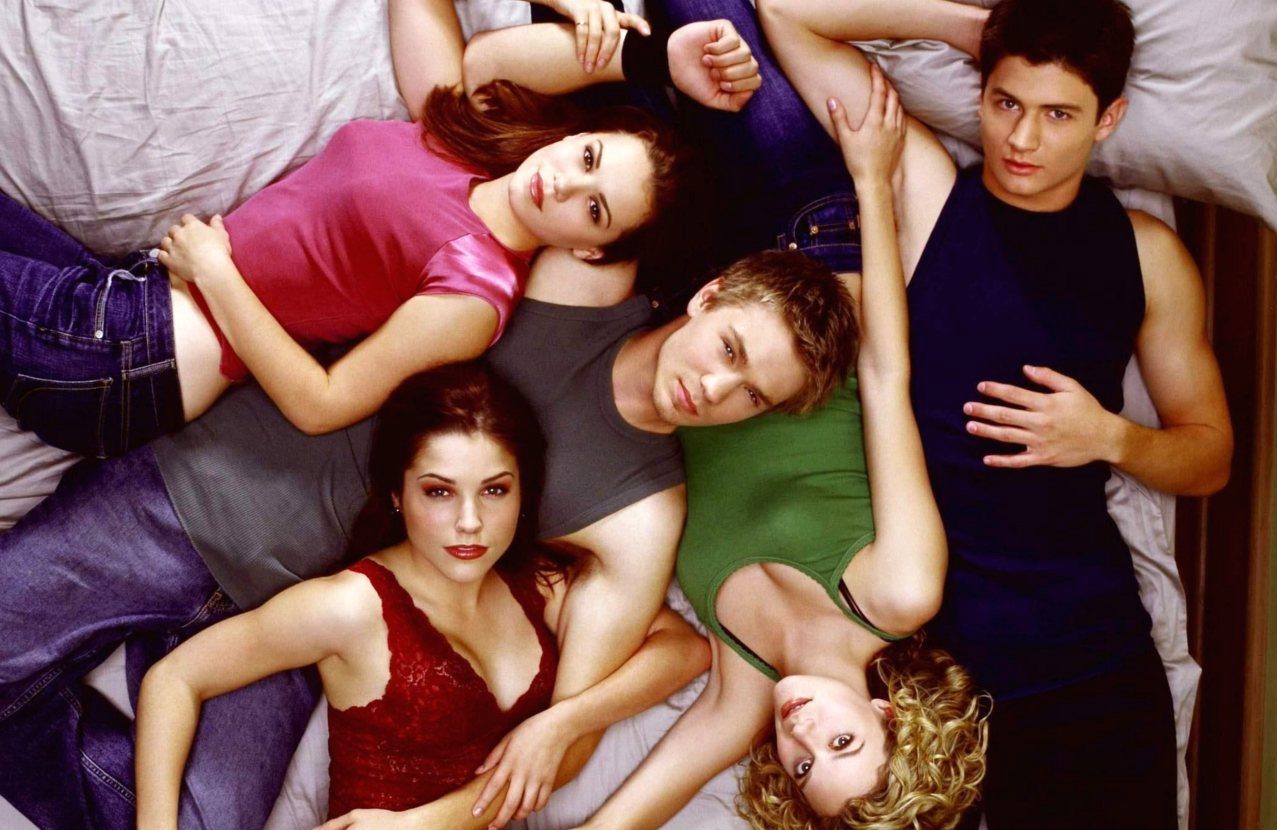The aughts were a mecca for television and among the season line up for the CW in 2003, formerly known as the WB, was a cultural gem: “One Tree Hill” (OTH).
The show’s popularity skyrocketed and with good reason. Attractive actors? Check. Small town charm? Check. Deeply rooted family drama? Check. All that’s missing is a love triangle (oh, wait). But the show quickly became synonymous with more than the ongoing Brucas vs. Leyton debate. “OTH” made music matter.
Instant Playback
As audience members, we take cues from episode titles. They foreshadow likely events within the episodes and having a pop culture reference to lean on is invaluable and sometimes a trivia game. Shows such as “Degrassi” have done this in the past, using song titles for every episode. However, while this trend has been amusing in other television series, in “OTH” it creates a purposefully cohesive message of how big a role music takes on in the show.
Ask any “OTH” fan what scene “Dare You to Move” by Switchfoot plays and you’ll have them immediately swooning over Nathan and Haley’s first kiss. Again, other shows have managed to achieve this phenomenon where one song can bring an entire fan base back to a particular moment in time (“Grey’s Anatomy” and “Chasing Cars,” anyone?) But “OTH” does it all the time.
“Here Comes a Regular” cues Ellie’s death. “Glad” marks the start of a pompous character arc. “Non Believer” means the reunion of long awaited friendships. And of course Gavin Degraw’s iconic theme song “I Don’t Want To Be.”
The Substance to Sawyer
Now, Peyton Sawyer is a wonderful principal character embodying wit and vulnerability. But take away her connection to music and she is nothing but a blonde whose dad is NEVER home. “People always leave” is a heartbreaking running quote and motif of Peyton’s that can be beautifully juxtaposed by her relationship with music.
Music has never abandoned her. It gives her strength and hope. It’s what makes her such a resilient character. And Peyton’s passion for music isn’t just pivotal to her characterization and evolution, but her relationships as well.
Near the middle of Season 3, Ellie, Peyton’s biological mother who’s dying of cancer, makes a final attempt to get to know her daughter. They share her last moments producing an album together, driving through a storm with the top down and wind whipping at their faces, recounting stories of songs that made them feel alive. And when Ellie passes, Peyton is able to find peace in her leather jacket and the promise that “all songs end. Is that any reason not to enjoy the music?”
Tric or Ticketmaster
Just as “Friends” had Central Perk, “OTH” had Tric, a nightclub owned by Karen Roe (Lucas Scott’s mother) and run by resident angel of angst, Peyton Sawyer. Tric was used as an avenue by the show’s writers and creators to promote bands, both established and new. Never before had a show created a plotline so purposefully centered around music and the type of atmosphere it could bring.
This inspired several live concerts to be had throughout the series by well-known bands such as Lupe Fiasco, Noisettes and Fall Out Boy (with Pete Wentz having had a rather extended and unbelievable character arc in Season 3). But plenty of new talents also all had their starts on the Tric stage.
Five Careers and Counting
Setting the record, “OTH” is responsible for launching not one, not two, but five singing careers! In Season 2, Bethany Joy Lenz, who plays tutor girl Haley James, and Tyler Hilton, conceited country-rock singer Chris Keller, got their starts at Tric having been asked to be the openers for The Wreckers national tour. And then in Season 5, Kate Voegele joined the cast as shy pianist/secret lyricist, Mia Catalano, who became the first, and what seemed the only, artist signed under Peyton’s label titled Red Bedroom Records.
Next was lead singer of indie band Wakey!Wakey!, Michael Grubbs, who shocked viewers with his raw lyrics and voice. Finally, in Season 8, Jana Kramer, who played ditzy-turned-heart-of- gold actress Alex Dupré, got her chance to test the pipes with her debut song “Whiskey.” OTH is the show that launched a thousand record deals.
Not All Characters are Human
“OTH: had a way of making it’s music seem as if it were another entity unto itself. It wasn’t background noise. It wasn’t purely pragmatic in its effect. It was another character, another element of the story an audience was meant to interact with. At any given time, a song wasn’t meant only to reflect the emotions of the characters, but to push the story further, to allow audiences the chance to respond and to feel.
All of “OTH”’s musical moves were made purposefully, whether that be the crafting of a character or merely the subtle joy fans get from hearing their favorite songs. The writers gracefully intertwined music to the very core of the show. The stories these songs tell, the moments they inspire, are just as telling and defined as the dialogue. “OTH” has made a move so undeniably bold and poignant: music matters.

















